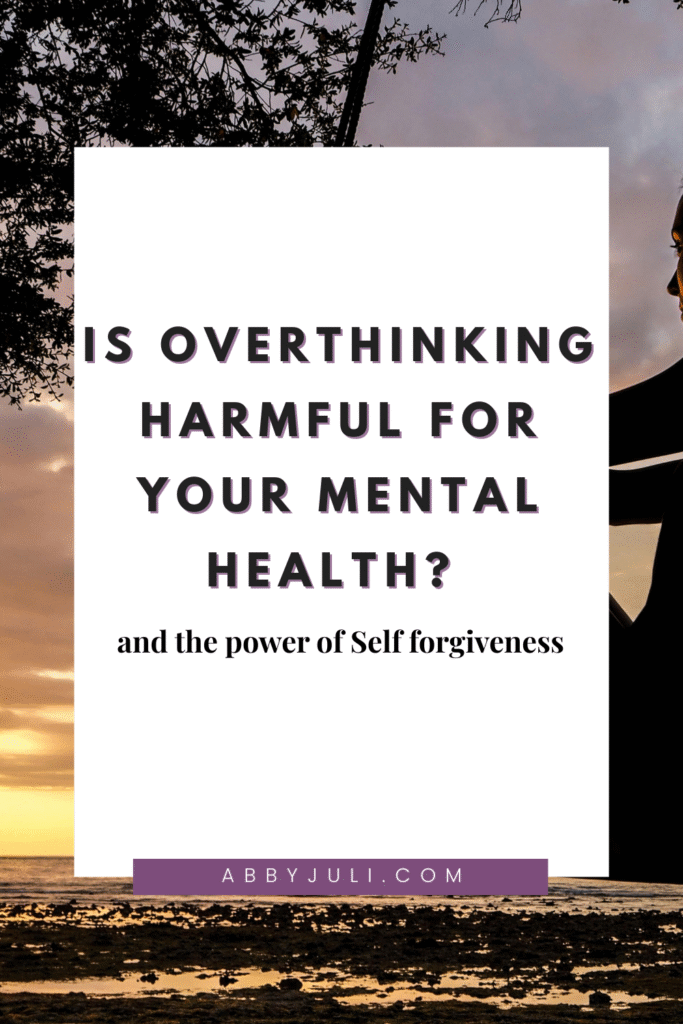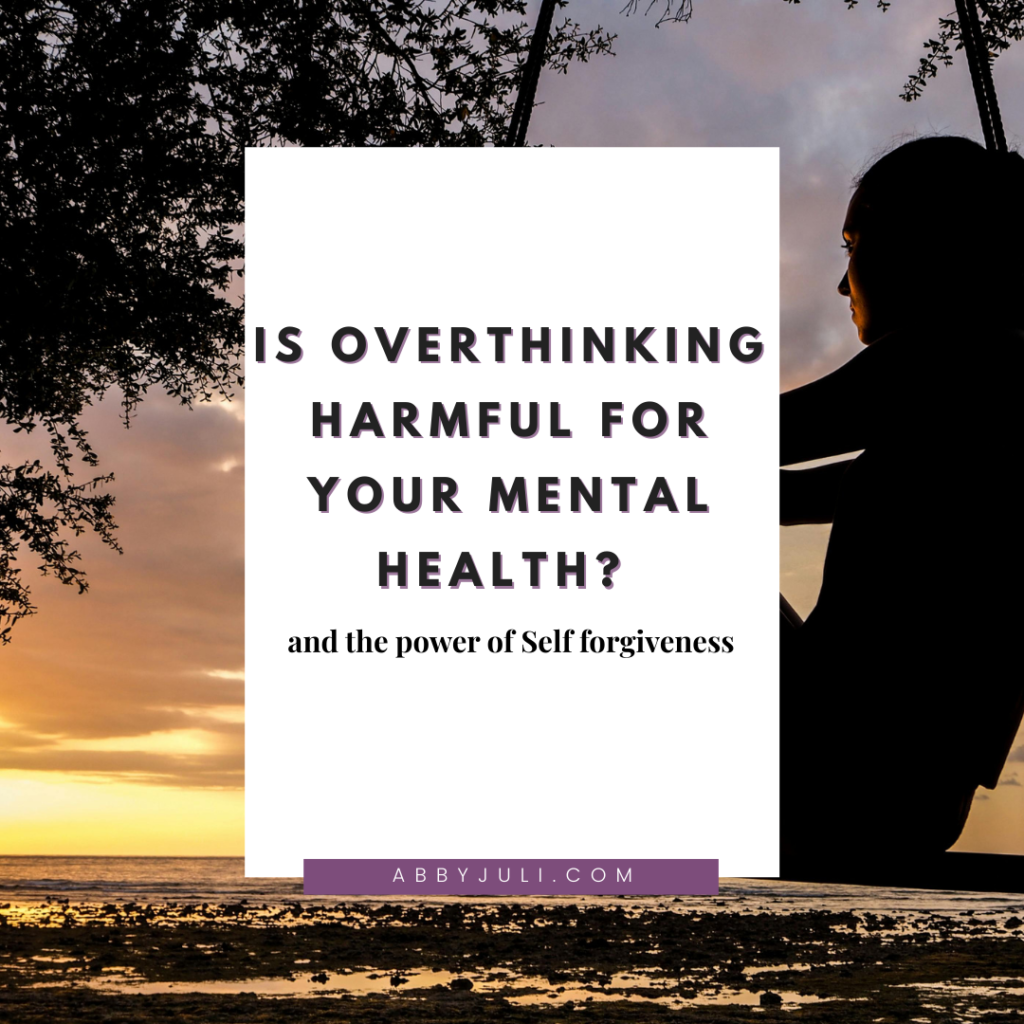
⚠️ Disclaimer
I’m not a mental health professional. This blog post is based on my personal experiences with overthinking and anxiety. It is not intended to replace professional advice, diagnosis, or treatment. If overthinking, regret, or anxiety are affecting your daily life, please reach out to a licensed therapist, counselor, or mental health professional who can provide you with personalized support.
If you’ve ever caught yourself replaying a conversation, second-guessing a decision, or wondering if you said or did the wrong thing, you’re not alone. I’ll be the first to admit: when I say “nothing’s wrong,” it usually means I’m overthinking. My brain runs in circles — Did I do something wrong? Should I have said this differently? Do they even like me?
And don’t get me started on money. I can spend hours thinking, Should I buy this? Do I really need it? Should I cancel the order? I’m famous for overthinking my own decisions, and honestly, it can feel like I’m driving myself crazy.
But here’s the truth: overthinking isn’t just an annoying habit. It can actually hurt your mental health.
🧠 Why Overthinking Is Harmful
It fuels anxiety. The more you replay situations or question decisions, the more your body stays stuck in “fight-or-flight” mode.
It makes you doubt yourself. You start questioning your worth, relationships, and choices, even when you did nothing wrong.
It drains your energy. Overthinking leads to decision fatigue, so even small choices (like ordering dinner or buying something online) feel overwhelming.
It messes with your focus and sleep. When your brain won’t shut off, you end up exhausted and distracted.
It keeps you stuck. Instead of moving forward, you end up spiraling into endless “what ifs.”
🔎 Common Causes of Overthinking
So why do we do this to ourselves? Overthinking is often rooted in:
Fear of judgment or rejection → worrying about how people see you.
Perfectionism → feeling like you have to get everything just right.
Past regrets → if you’ve made mistakes before, your brain wants to “protect” you by overanalyzing.
Lack of control → when life feels uncertain, overthinking feels like a way to gain control.
Financial stress → money decisions especially trigger overthinking because they carry real consequences.
🔄 Overthinking the Past
Overthinking doesn’t just show up in the present. Sometimes, I find myself going all the way back — even to choices I made when I was 10 years old. I’ve already graduated, yet I still catch myself replaying my senior year, reminding myself of what happened, and wondering what I could have done differently.
The truth is, living in the “what ifs” of the past doesn’t change what happened. All it does is keep me stuck, questioning decisions I can’t undo. And that’s one of the hardest parts of overthinking: it convinces us that replaying the past might help, when really, it only fuels regret and anxiety.
Instead of asking, “What could I have done differently?” I’m learning to ask, “What can I learn from this, and how can I move forward?”
🌀 Is Getting Lost in Your Mind the Same as Overthinking?
In my last blog post, I wrote about how getting lost in my mind is harmful to my mental health. Overthinking and getting lost in your mind feel very similar — both trap you in your head, replaying thoughts on a loop.
The difference is this:
Overthinking is usually focused on analyzing situations, decisions, or what-ifs (past or future).
Getting lost in your mind is more like drifting away into your own head, where thoughts pull you away from the present moment.
Both can be overwhelming and both fuel anxiety. The key is noticing when it’s happening and gently pulling yourself back to reality — whether through grounding, journaling, or simply reminding yourself, “I’m here right now, not in my thoughts.”
💛 The Power of Self-Forgiveness
One thing I’ve learned is that overthinking often sticks to the past because I haven’t fully forgiven myself for it. I’ll replay old decisions and wonder endlessly what I could have done differently, even though I can’t go back.
Self-forgiveness doesn’t mean pretending those choices didn’t matter. It means saying: “Yes, I made mistakes. But I’m not the same person I was back then. I’m allowed to grow.”
Here are a few reminders I use when I catch myself stuck in regret:
I did the best I could with what I knew at the time.
Those choices helped shape who I am today.
I can’t change the past, but I can change how I move forward.
I deserve compassion, just like anyone else.
Letting go of old regrets isn’t easy, but every time you choose self-forgiveness over self-blame, you take back a little piece of your peace.
How to Practice Self-Forgiveness
- Acknowledge the mistake honestly. Instead of running from it, admit what happened and how it makes you feel.
- Remind yourself you did your best. You only knew what you knew at that time. Be gentle with your younger self.
- Reframe the memory. Instead of, “I ruined everything,” try, “That experience taught me something valuable.”
- Write a forgiveness letter to yourself. You don’t have to share it — just release the weight of carrying old regret.
- Replace regret with compassion. Ask yourself, “If my best friend did this, would I forgive them?” If the answer is yes, why not extend that same grace to yourself?
- Take forward action. Self-forgiveness doesn’t erase the past, but it empowers you to make different choices today.
The more you practice self-forgiveness, the easier it becomes to quiet the overthinking voice that wants to replay the past on repeat.
✅ How to Calm the Overthinking Spiral
If you’re nodding your head right now, here are a few tools that actually help:
Name it. The moment you realize you’re spiraling, literally say: “I’m overthinking right now.” Naming it takes away some of its power.
Set a time limit. Give yourself 10–15 minutes to make a decision, then commit. No more endless loops.
Write it out. Journaling helps pull those worries out of your head and onto paper. Once you see them, they often feel smaller.
Ground yourself. Move your body, focus on your breath, or try the “5-4-3-2-1” method (5 things you see, 4 you feel, 3 you hear, 2 you smell, 1 you taste).
Practice self-compassion. Remind yourself: “It’s okay not to be perfect. I’m doing my best.”
Final Thoughts
Overthinking often comes from a place of wanting to protect ourselves. We don’t want to make mistakes, disappoint others, or waste money. But instead of protecting us, overthinking traps us in a cycle of anxiety and self-doubt.
The next time you catch yourself spiraling, pause. Take a breath. Remind yourself that one decision, one conversation, or one purchase doesn’t define you.
You’re allowed to forgive yourself, make choices, move forward, and trust yourself.

